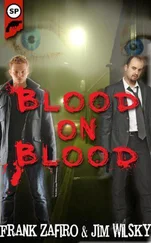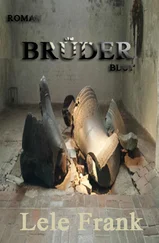Frank Tallis - Vienna Blood
Здесь есть возможность читать онлайн «Frank Tallis - Vienna Blood» весь текст электронной книги совершенно бесплатно (целиком полную версию без сокращений). В некоторых случаях можно слушать аудио, скачать через торрент в формате fb2 и присутствует краткое содержание. Жанр: Исторический детектив, на английском языке. Описание произведения, (предисловие) а так же отзывы посетителей доступны на портале библиотеки ЛибКат.
- Название:Vienna Blood
- Автор:
- Жанр:
- Год:неизвестен
- ISBN:нет данных
- Рейтинг книги:3 / 5. Голосов: 1
-
Избранное:Добавить в избранное
- Отзывы:
-
Ваша оценка:
- 60
- 1
- 2
- 3
- 4
- 5
Vienna Blood: краткое содержание, описание и аннотация
Предлагаем к чтению аннотацию, описание, краткое содержание или предисловие (зависит от того, что написал сам автор книги «Vienna Blood»). Если вы не нашли необходимую информацию о книге — напишите в комментариях, мы постараемся отыскать её.
Vienna Blood — читать онлайн бесплатно полную книгу (весь текст) целиком
Ниже представлен текст книги, разбитый по страницам. Система сохранения места последней прочитанной страницы, позволяет с удобством читать онлайн бесплатно книгу «Vienna Blood», без необходимости каждый раз заново искать на чём Вы остановились. Поставьте закладку, и сможете в любой момент перейти на страницу, на которой закончили чтение.
Интервал:
Закладка:
“And what was the trophy, this time? The bodies were mutilated, but none of the body parts were missing.”
“Blood,” said Liebermann. “He took their blood. Conveniently absorbed into the clothes in his wardrobe.”
Liebermann drained his coffee cup.
“Good heavens! It all fits,” cried Rheinhardt, suddenly scooping the honey-colored remains of the tiroler strauben into his mouth.
“Indeed,” continued Liebermann, “such a man might even consecrate his dreadful act by sanctifying the brothel with a cross.”
Rheinhardt clapped his hands together. “Yes, of course, that too, that too! It all fits!” However, his excitement could not be sustained in view of the young doctor's sour expression. “Whatever is the matter, Max?”
“It's too obvious. Krull is the… ideal suspect: a perfect example of Lombroso's L'uomo delinquente, whose personal history and psychological conflicts seamlessly correspond with the crime.”
Rheinhardt leaned back in his chair and pushed his plate aside. “And what, in God's name, is wrong with that?”
Liebermann shrugged. “Of course, all my theorizing would amount to nothing if we were to discover that Krull had told us the truth about those stains-if the blood isn't human.”
“Indeed,” said Rheinhardt. “But how on earth could we establish that? Blood is blood-isn't it?”
“Not exactly.”
“There is a test?”
“I am not familiar with one-but we both know someone who might be.”
“We do?”
“Yes. Miss Lydgate.”
Rheinhardt raised his eyebrows. “The Englishwoman… I did not realize that you were still in contact with her.”
“She is now conducting research into diseases of the blood with Landsteiner-at the Pathological Institute,” Liebermann continued. “If any procedure exists that can distinguish animal blood from human blood, I can assure you that she will know about it.”
20
AMELIA LYDGATE POURED THE tea and offered Liebermann some English biscuits.
“My mother sent them from London. She purchased them in Fortnum's.”
“Fortnum's?”
“Yes, Fortnum amp; Mason-a shop of quality in Piccadilly. They are suppliers to the royal family.”
“Thank you,” said Liebermann, biting through the plain, crisp circle, and cupping his hand to collect the crumbs. The biscuit was flavorless and extremely dry-nothing like the rich, fruity, sugar-coated creations that could be found in any Viennese bakery. Even so, he smiled politely and took a sip of Earl Grey to moisten his mouth.
“It was kind of you to respond so quickly to my note,” said Amelia, sitting down on the other side of the gateleg table.
“Not at all,” said Liebermann. “You said that you wished for an opinion?”
“Yes,” Amelia replied. “Are you familiar with Professor Foch?”
“The surgeon?”
“Yes. I have attended several of his lectures and practical demon-strations-which, on the whole, are highly informative. However, some weeks ago he insisted that I should leave a class because I was clearly about to swoon. This was not the case, but Professor Foch was very determined and I was eventually obliged to comply with his request. We met the following day: he suggested that his lectures might not be suitable for young ladies and proposed that I make alternative arrangements. After making further inquiries, I discovered that Professor Foch has been ejecting women from his classes since the medical faculty began admitting female students two years ago. I subsequently made a formal complaint to the dean.” Amelia paused and her brow furrowed. “Dr. Liebermann, do you think my response was appropriate? Or have I behaved rashly?”
“Oh, without a doubt it was the correct thing to do… but…”
“Yes?”
“A man like Professor Foch wields considerable power among Viennese doctors, and if you decided, on graduation, to specialize in his discipline, I daresay he could make life very difficult for you. However, given that your interests lie elsewhere-and that you already have a well-placed friend in the person of Landsteiner-I suspect that the registration of your complaint will have few, if any, adverse consequences. The dean will now be obliged to reprimand Professor Foch, which one hopes will have the desired effect. But I doubt very much that the dean can be counted on to deliver sanctions. Unfortunately, he too is a misogynist. He once told a colleague that women could never be doctors because they are handicapped by their smaller brains.”
Miss Lydgate's hand covered her mouth in horror. “If that is his view, then why should he respond to my complaint at all?”
“Oh, he has no choice. The emperor is very keen on the idea of female doctors. Only an absolute idiot would risk the emperor's displeasure. Miss Lydgate, in Vienna promising careers have been utterly destroyed by a fleeting look of dissatisfaction on the emperor's face, a fleeting look that might-in all likelihood-have been nothing more than a touch of indigestion!”
“Then perhaps I should petition the emperor himself.”
Amelia said these words calmly and seriously.
“Well, you could do that,” said Liebermann, suppressing his surprise. “But I would advise you to delay such a bold course of action. First, let us see how things develop. Even the likes of Professor Foch cannot resist progress indefinitely.”
“Thank you, Dr. Liebermann,” said Amelia. “You have been most helpful. Could I interest you in another biscuit?”
Liebermann raised his hand a little too hastily. “No, thank you. Most kind-but no, thank you.”
“Then, more tea?”
Amelia filled the young doctor's cup and offered him the milk jug.
For some time they discussed Amelia's life at the university and the projects she intended to initiate with Landsteiner at the Pathological Institute. Although her manner was-as always-cool and detached, Liebermann could tell that she was excited by her new life. She enthused, in muted but expressive tones, about the courses she had chosen, a full scientific curriculum including anatomy, botany, chemistry, microscopy, physics, and physiology. She was even attending a few nonscientific lectures in philosophy (having recently been exposed to-and become intrigued by-the writings of Nietzsche).
When they had exhausted these topics, Liebermann asked, “Miss Lydgate… I was wondering if you would be willing to assist again with respect to a police matter?”
“Of course. I would be glad to. Is Inspector Rheinhardt well?”
“Yes, very well, thank you. He sends his best wishes.”
“You will do me the small service, I hope, of returning the compliment.”
Liebermann paused and placed his hands together.
“Miss Lydgate,” he began. “Are you aware of what happened in Spittelberg this week?”
“Yes,” said Amelia. “Four women were murdered. I read about it in the Zeitung.”
“Indeed. An atrocity, the likes of which Inspector Rheinhardt and his colleagues at the security office have never encountered before. A man-suspected of the crime-has already been apprehended. Blood-soaked clothes were discovered in his wardrobe but he works in an abattoir and claims that the blood is only pig's blood. Is there any way we can determine the truth or falsehood of his assertion?”
“Yes,” said Amelia plainly.
“But how…”
“There is a test,” said Amelia. “It was developed a few years ago by an assistant professor at the University of Greifswald. I believe he is Viennese by birth: his name is Paul Uhlenhuth.”
“The name is not familiar.”
“A brilliant man. The procedure requires the production of an antiserum, which can then be used to determine the presence of characteristic precipitates. It has come to be known as the precipitin test.”
Читать дальшеИнтервал:
Закладка:
Похожие книги на «Vienna Blood»
Представляем Вашему вниманию похожие книги на «Vienna Blood» списком для выбора. Мы отобрали схожую по названию и смыслу литературу в надежде предоставить читателям больше вариантов отыскать новые, интересные, ещё непрочитанные произведения.
Обсуждение, отзывы о книге «Vienna Blood» и просто собственные мнения читателей. Оставьте ваши комментарии, напишите, что Вы думаете о произведении, его смысле или главных героях. Укажите что конкретно понравилось, а что нет, и почему Вы так считаете.












